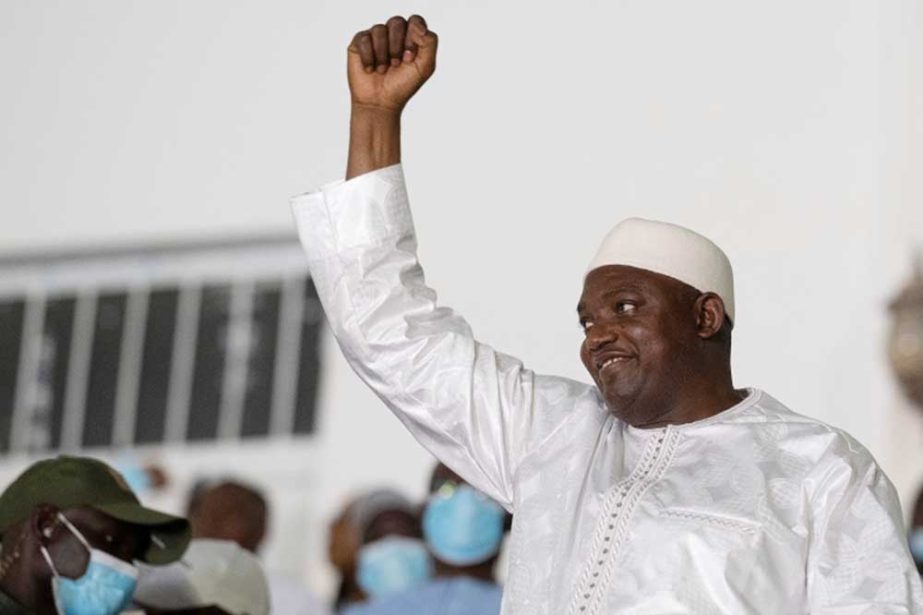
Al Jazeera :
Adama Barrow was declared this week the winner of The Gambia’s closely watched presidential election, securing a second five-year term in office.
The vote was seen as a test of democratic stability for the small country, five years after a regional peacekeeping mission forced longtime ruler Yahya Jammeh out of The Gambia after he refused to concede defeat to Barrow.
But the incumbent’s new mandate also comes with a renewed responsibility to the victims of human rights violations committed during his predecessor’s 22 years in office. The election took place just days before a highly anticipated report recommended the government prosecute a number of officials for crimes allegedly committed during Jammeh’s era.
“One thing we want to assure, there will be justice and reconciliation, reparation – it will all happen but we have to be patient,” Barrow said in his first news conference after Saturday’s election.
In 2017, Barrow had established the Truth, Reconciliation and Reparations Commission (TRRC) for that purpose. In the years that followed, the TRRC heard harrowing testimonies from hundreds of witnesses, including former officials of the Jammeh administration as well as victims and their relatives.
The commission said up to 250 people had died in state-sanctioned abuse, while the use of death squads, rape and torture as punishment was rampant.
In late November, the TRRC’s report was delivered to Barrow, who now has six months to decide whether to act on it. Neither the 14,000-page document, nor the names of the alleged perpetrators, have been made public.
To “forgive and forget with impunity the violations and abuses … would not only undermine reconciliation but would also constitute a massive and egregious cover-up of the crimes committed,” the commission said in a statement.
Global rights watchdog Amnesty International has also called for “an unequivocal commitment from the Gambian authorities that justice and reparations will finally be delivered” to the victims of Jammeh’s era. The former president, who is in exile in Equatorial Guinea, has previously denied allegations of wrongdoing.
Since the commission’s inception, a debate has begun on the presence of political willpower to implement the report’s recommendations. Concerns among victims and rights campaigners grew earlier this year after Barrow formed a coalition alliance with Jammeh’s old party – the Alliance for Patriotic Reorientation and Construction (APRC) to help him secure a second term.
Experts also warn that besides the long and complicated process of handing over the report to parliament and publishing a white paper, several other limitations could ensure that this is a long walk to justice.

